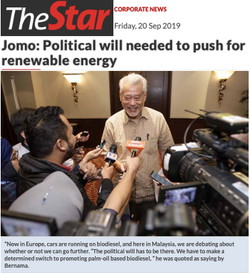- Oct 14, 2025
- 4 min read
KUALA LUMPUR, Malaysia, Oct 14 2025 (IPS) - Global South cooperation arrangements must evolve to better respond to pressing contemporary and imminent challenges, rather than risk being irrelevant straitjackets stuck in the past.
Southeast Asia
In 1967, the Association of Southeast Asian Nations (ASEAN) was established, initially to address regional tensions following the formation of Malaysia in September 1963.
The creation of Malaysia had led to problems with the Philippines and Indonesia, while Singapore had seceded from the new confederation in August 1965.
ASEAN was not a Cold War creation in the same sense as the Southeast Asia Treaty Organisation (SEATO), one of several regional security arrangements established by the Americans in the early 1950s, the only significant one remaining being NATO.
ASEAN’s most significant initiative was to declare Southeast Asia a Zone of Peace, Freedom and Neutrality (ZOPFAN) in 1973, two years before the end of the Indochina wars.
Regional economic cooperation
The region has since seen four major economic initiatives, with the first being the ASEAN Free Trade Area (AFTA).
AFTA was established at the height of the trade liberalisation zeal in the early 1990s. Beyond the initial ‘one-time’ trade liberalisation effects, there has been little actual economic transformation since then.
Trade liberalisation mahaguru Jagdish Bhagwati’s last (2008) book, Termites in the Trading System, saw preferential plurilateral and bilateral FTAs as ‘termites’ undermining the WTO promise of multilateral trade liberalisation.
While seemingly mutually beneficial, such FTAs are akin to termites that surreptitiously erode the foundations of the multilateral trading system by encouraging discrimination, thereby undermining the principle of non-discrimination.
Naive enthusiasm for all FTAs has thus actually undermined multilateralism, also triggering pushback since the late 20th century.
Following the 2008-09 global financial crisis, the G20’s developed economies all raised protectionist barriers, confirming their dubious commitment to free trade.
Meanwhile, US trade policies since the Obama presidency, and especially this year, have made a mockery of the WTO’s commitment to the multilateralism of the 1994 Marrakech Declaration.
Asymmetric financialization
The 1997-98 Asian financial crisis should have served as a wake-up call about the dangers of financialization, but the West dismissed it as simply due to Asian hubris.
Under Managing Director Michel Camdessus, IMF promotion of capital account liberalisation even contravened the Fund’s own Articles of Agreement.
When Japanese Finance Minister Miyazawa and Vice Minister Sakakibara proposed an East Asian financial rescue plan, which was soon killed by then US Treasury Deputy Secretary Larry Summers.
Eventually, the Chiang Mai Initiative was developed by ASEAN+3, including Japan, South Korea, and China as the additional three. Ensuring bilateral swap facilities for financial emergencies have since been multi-lateralised.
ASEAN+3 later led the Regional Comprehensive Economic Partnership (RCEP), still conceived mainly in terms of regional trade liberalisation.
Non-alignment for our times
Developing relevant institutions and arrangements in our times requires us to pragmatically consider history, rather than abstract, ahistorical principles.
2025 marks several significant anniversaries, most notably the end of World War II in 1945 and the 1955 Bandung Asia-Africa solidarity conference, which anticipated the formation of the non-aligned movement.
The world seems to have lost its commitment to creating the conditions for enduring peace. Despite much rhetoric, the post-World War II commitment to freedom and neutrality in the Global North has largely gone.
The world was deemed unipolar after the end of the Cold War. However, for most, it has been multipolar, with the majority of the Global South remaining non-aligned.
As for peace-making, the US’s NATO allies have increasingly marginalised the United Nations and multilateralism with it. Already, the number of military interventions since the end of the Cold War exceeds those of that era.
While ASEAN cannot realistically lead international peace-making, it can be a much stronger voice for multilateralism, peace, freedom, neutrality, development, and international cooperation.
East Asian potential
The world economy is now stagnating due to Western policies. Hence, ASEAN+3 has become more relevant.
Just before President Trump made his April 2nd Liberation Day unilateral tariffs announcement, the governments of Japan, China, and South Korea met in late March without ASEAN to coordinate responses despite their long history of tensions.
ASEAN risks becoming increasingly irrelevant, due to the limited progress since the Chiang Mai Agreement a quarter of a century ago. Worse, ASEAN’s regional leadership has rarely gone beyond trade liberalisation, now sadly irrelevant in ‘post-normal’ times.
Rather than risk growing irrelevance, regional cooperation needs to rise to contemporary challenges. Working closely with partners accounting for two-fifths of the world economy, ASEAN countries only stand to gain from broader regional cooperation.
President Trump’s ‘shock and awe’ tariffs and Mar-a-Lago ambitions clearly signal that ‘business as usual’ is over, and Washington intends to remake the world. Will East Asia rise to this challenge of our times?
Related IPS Articles
Available online at: Strengthening East Asian Cooperation via ASEAN?

















